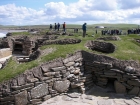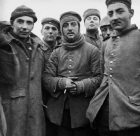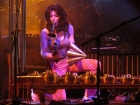Whole School
As part of a broad and balanced curriculum, history should find a place at the heart of school life, providing enrichment through trips and projects, through cross-curricular links and through whole school activities such as assemblies. In this section you will find resources and guidance to ensure history enjoys a high profile across the whole school.
-

Insights from a year of leading the development of a ‘knowledge-rich curriculum’
ArticleClick to view -

Primary history and British values
ArticleClick to view -

Ideas for Assemblies: Anniversaries
ArticleClick to view -

Whole-school planning for progression
ArticleClick to view -

Ideas for Assemblies - Remembrance
ArticleClick to view -

From Home to the Front: World War I
ArticleClick to view -

Early Islamic civilisation
ArticleClick to view -

Assessment and Progression without levels
ArticleClick to view -

Ideas for Assemblies: the role of the international community in the First World War
ArticleClick to view -

Ideas for Assemblies: Lest we forget
ArticleClick to view -

The National Curriculum for History from September 2014: the view from Ofsted
ArticleClick to view -

Ideas for Assemblies: historical events
ArticleClick to view -

Towards inclusion: A study of significant figures and disability within the national curriculum
ArticleClick to view -

V&A Schools SEN Programme
ArticleClick to view -

Teaching famous people at key stage one
ArticleClick to view -

Helping pupils to view historical film critically
ArticleClick to view -

Museums, schools and creativity: How learning can be enhanced
ArticleClick to view -

Case Study: Creative chronological thinking
ArticleClick to view -

A creative Egyptian project
ArticleClick to view -

In My View: Creativity & History
ArticleClick to view


